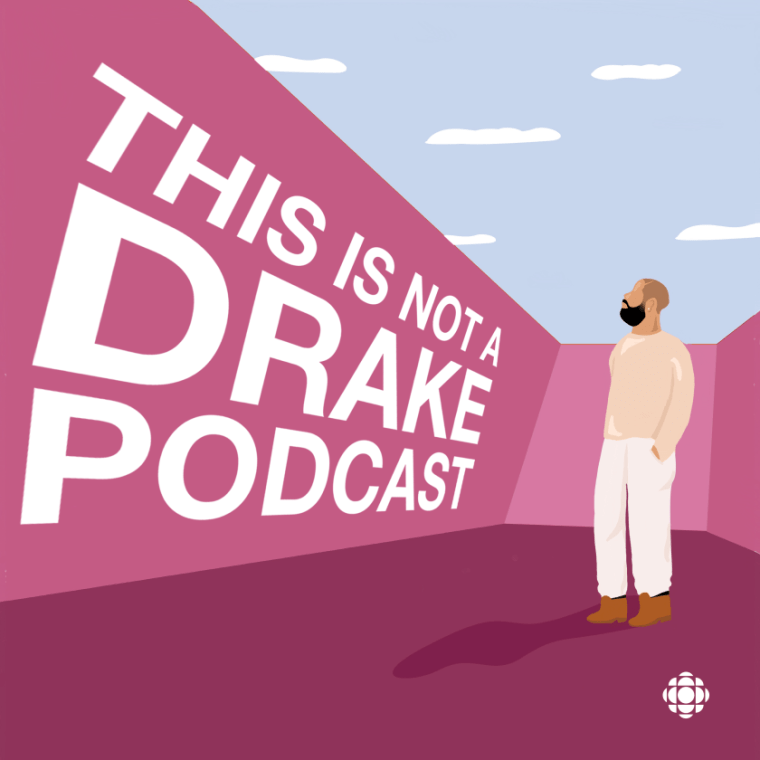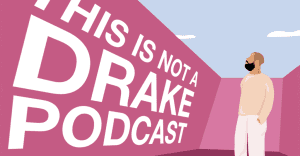
CBC’s newest podcast, aptly titled This Is Not A Drake Podcast, uses the star as a springboard into conversations about everything from autotune to gender roles; dedicating its episodes to the context and historical groundwork of The Boy’s meteoric rise and the moments that made it possible. Host Ty Harper, alongside producers Anupa Mistry and Del Cowie, showrunner Josh Bloch and consulting producer Dalton Higgins offer a glimpse into a pre-Drake Toronto and a post-Drake world.
In one of the most poignant episodes of the series, Mistry takes over hosting duties to parse through Drake’s “nice guy” persona, with the help of hip hop feminist scholars Treva Lindsey, Janessa Williams and Toronto-based artist Sydanie. For all his percieved feminist leanings, Mistry and the episode’s guests discuss the categorization of good vs. bad girls, and how they become more glaring with closer listens to seemingly innocuous lyrics. As the assumed antithesis to other more aggressive archetypes we find in rap, it’s one still drenched in the kind of benevolent sexism that typically flies under the radar. Think “Hotline Bling,” “Shot For Me,” “Marvin’s Room,” and of course, “Trust Issues,” just a few examples of the rapper at his distrustful and judgmental worst. “Drake's lyrics are rooted in patriarchal and paternalistic themes, complete with a fascination with “good” girls and saving women,” Tahirah Hairston wrote for Splinter back in 2015. “He simultaneously plays the role of worried father and jealous ex-boyfriend.”
Still, these examinations never cross into attack territory, as the episode unpacks the complex relationship women, particularly Black women, have with rap in general; simultaneously holding it accountable while feeling the fierce pull of fandom, loyalty and protectiveness. “We’re not saying that hip hop is singularly responsible for the rampant sexism and misogyny that exists in U.S. society, however, because this is a culture that we love and feel a part of feel connected to, I think it’s important that we ask some really hard questions about why we land here,” Lindsey says on the episode.
“Hip hop brings to light many of the issues that feminists were reluctant to take on. Issues of accountability, issues of Black female sexuality and eroticism,” says hip hop journalist and scholar Joan Morgan in a clip from the early 2000s. She coined the term hip-hop feminism on the pages of her book When Chickenheads Come Home to Roost, reckoning with the genre’s misogynist underpinnings. “When you go on Oprah and you dismiss hip hop as sexist and misogynist, all of it, you pass up valuable opportunities to have some of these conversations.”
The episode pries deeper into the genre’s many gender performances, from the gangster to the conscious queen to the vixen, and calling for accountability for its sometimes damaging iterations from a perspective of appreciation as opposed to dismissiveness. “Solutions to misogyny and feminism can be framed as the right or wrong way to behave or think,” Anupa sums up, making reference to Morgan. “[She] writes about developing a feminism that fucks with the greys.”
The rise of one of the worlds biggest stars doesn’t happen in a vacuum and, for all its examinations, the podcast focuses less on the man himself, and more on the complex universe around him.
Listen to all six episodes of This Is Not A Drake Podcast now on CBC.


